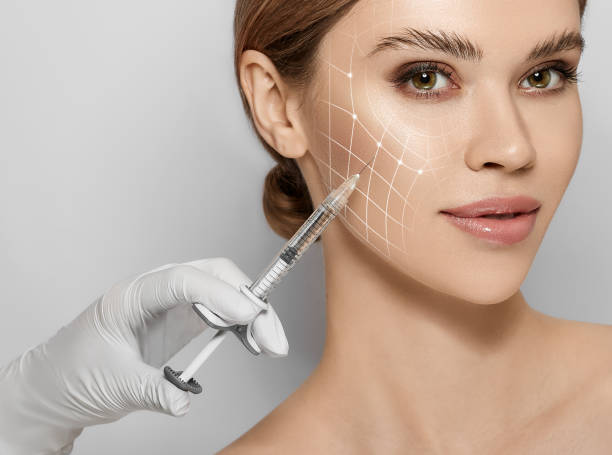Dubai’s picturesque skyline, luxurious beaches, and modern architecture make it an ideal city for aerial photography. Drone Photography Dubai offers unique perspectives that capture the city’s grandeur in ways previously unimaginable. However, to legally fly a drone for photography purposes in Dubai, obtaining the correct permits and adhering to regulations is essential. Dubai has strict laws regarding drone use to ensure safety and privacy. This guide covers everything you need to know about obtaining a drone permit for photography in Dubai, from understanding regulations to completing the application process.
1. Understanding Drone Regulations in Dubai
Dubai’s drone regulations are designed to balance public safety, privacy concerns, and the growing popularity of drone use for both recreational and commercial purposes. The Dubai Civil Aviation Authority (DCAA) and the General Civil Aviation Authority (GCAA) are the main authorities governing drone activity in the UAE. Familiarizing yourself with their guidelines is crucial as non-compliance can result in significant fines or even confiscation of your equipment.
Permissible Uses: In Dubai, drones can be used for commercial, recreational, and hobbyist photography, but each purpose may require different permits or approvals.
No-Fly Zones: Certain areas, such as near airports, military zones, and certain government buildings, are restricted. Dubai has specific no-fly zones that all drone operators must be aware of to avoid potential violations.
2. Types of Drone Permits Available
The type of drone permit you need depends on the intended use of the drone. Generally, permits are categorized based on whether the purpose is recreational, commercial, or for special events.
Recreational Permit: If the drone is being used purely for personal enjoyment and hobbyist photography, a recreational permit may be sufficient. However, there are still restrictions on where and how high you can fly.
Commercial Permit: For any commercial purposes, such as professional Drone Services In Dubai, videography, or media production, a commercial permit is mandatory. This process is more comprehensive and requires additional steps.
Special Event Permits: If you plan to use the drone for a specific event, such as a wedding or festival, an event-based permit might be necessary to cover the specific duration and location of the activity.
3. Registering Your Drone
Before applying for a permit, you must register your drone with the General Civil Aviation Authority (GCAA). The registration process is straightforward, and it is a mandatory step for both residents and tourists.
Registration Requirements: You will need the drone’s serial number, model, and technical specifications. Additionally, you may need to present identification documents like a passport or Emirates ID if you’re a resident.
GCAA App: The GCAA has an online platform and mobile app that streamlines the registration process. Registration fees may apply, so it’s advisable to check current rates on the official GCAA platform.
4. Applying for a Drone Permit through the DCAA
Once your drone is registered, you can apply for the necessary permit through the Dubai Civil Aviation Authority (DCAA). The application process varies depending on the type of permit, and the required documents can differ based on whether you are applying for recreational or commercial use.
Online Application: The DCAA’s website provides an online application portal for convenience. You’ll need to fill out specific forms, submit required documents, and pay applicable fees.
Documents Needed: Generally, you will need proof of drone registration, identification documents, and in some cases, a security clearance. Commercial applicants may also need to provide proof of business registration or specific project details.
5. Obtaining Security Clearance and Additional Permissions
In some cases, a security clearance is required, especially if the drone will be used for commercial purposes or in sensitive areas. This process is in place to ensure that drone use does not infringe on privacy or security in the city.
Security Clearance: The security clearance process may involve a background check, and additional approvals might be necessary if the project involves sensitive areas or high-profile events.
Approvals from Local Authorities: Certain areas, such as those around historical sites or government buildings, may require additional permits from local authorities. It’s recommended to check with local municipalities for any site-specific restrictions.
6. Flying Restrictions and Rules to Follow
Even with a permit, there are rules you must follow when flying a drone in Dubai. The GCAA and DCAA have strict guidelines on altitude, distance, and no-fly zones. Violating these can result in fines or permit revocation.
Altitude Limits: Generally, drones should not be flown above 400 feet. This ensures they do not interfere with other aircraft and minimizes safety risks.
Privacy Laws: Dubai’s privacy laws prohibit the capture of images or videos of individuals without consent. It’s essential to avoid filming people or properties without explicit permission.
Daylight Hours Only: For safety reasons, drones can only be operated during daylight hours. Nighttime drone operations require special permissions that are typically only granted for large-scale events.
7. Insurance Requirements for Drone Use
Dubai mandates liability insurance for commercial drone operators. While it may not be required for recreational use, it is highly recommended to protect against potential accidents or property damage.
Commercial Liability Insurance: For commercial drone operations, liability insurance is generally mandatory and should cover accidents, third-party damages, and any potential harm caused by the drone.
Insurance Providers: Various insurers in Dubai offer drone liability policies, and it’s advisable to compare different providers to find the best coverage for your specific needs.
8. Fees and Duration of Permit Validity
The cost of obtaining a drone permit in Dubai varies depending on the purpose and type of permit.
Application Fees: Both the registration and permit application processes usually have fees associated with them. Commercial permits may incur higher fees due to additional clearance requirements.
Validity Period: Most permits are valid for a specific period, after which they must be renewed. Be sure to apply for renewal well in advance if you plan on using the drone for an extended time.




